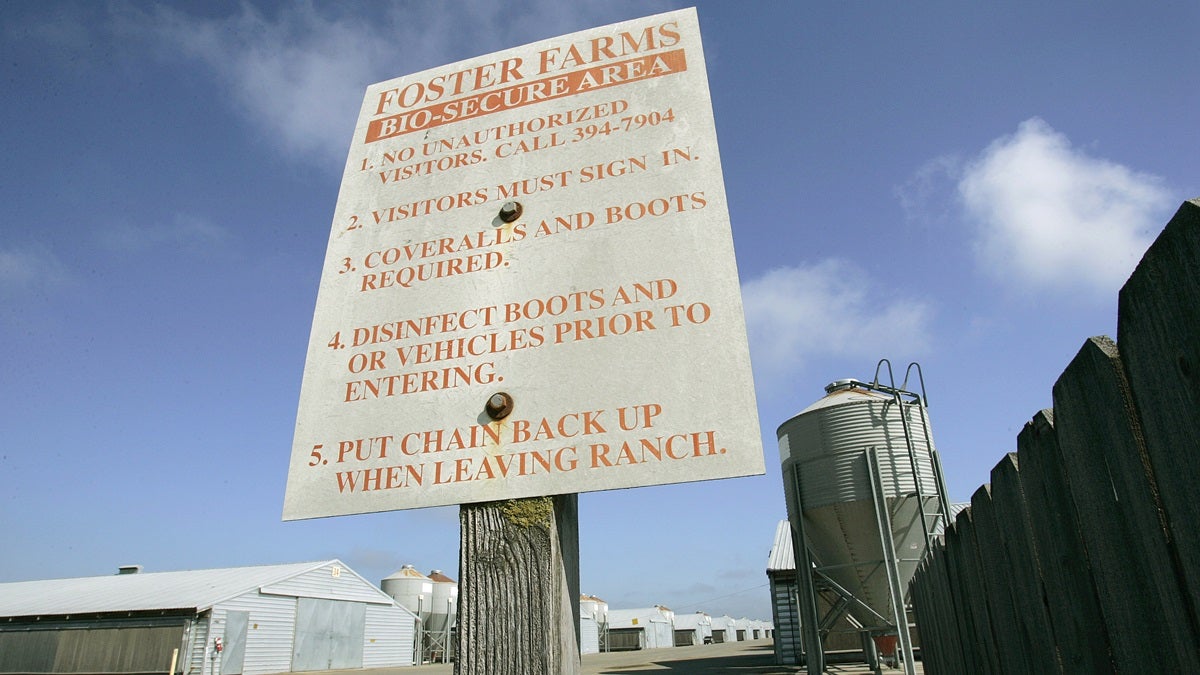Avian influenza fears for 2015

Poultry farms have posted their biosecurity rules designed to prevent the spread of avian influenza. (AP Photo/Ben Margot)
Delaware poultry growers need to be vigilant against bird flu, according to state agriculture leaders.
Avian influenza cases in Oregon and Washington have prompted the Delaware Dept. of Agriculture to warn Delaware poultry and bird owners to take precautions against the avian influenza.
“Though it’s far away at the moment, we know that avian influenza can spread rapidly,” said Delaware State Veterinarian Dr. Heather Hirst. She said poultry growers should take proper biosecurity precautions to keep the disease from spreading.
Avian influenza is spread from bird to bird by saliva, feces and other bodily fluids. Some species of wild waterfowl can carry and spread the virus through feces without showing any signs of the disease. That’s why state Wildlife Administrator Rob Hossler urges growers to keep domestic birds away from wild waterfowl.
“When domestic species and wildlife intermix, occasionally a high pathogenic form can develop which can cause increased mortality to one or both of the group,” Hossler said.
The highly pathogenic strain of avian influenza in Washington and Oregon has not yet been found in American commercial poultry flocks.
Protecting Delaware’s 200 million farm-grown chickens from a potential avian influenza outbreak is a major concern. Chickens represent a major portion of the state’s agricultural industry.
The industry already has significant measures in place to prevent such an outbreak. Those measures include keeping birds isolated from visitors and other birds, as well as watching for signs of disease and reporting sick or dead birds.
Dead bird reporting and monitoring is what led to the detection of avian influenza in a backyard poultry flock and among captive gyrfalcons in Washington and Oregon. “Reporting sick or dead birds is especially critical to keeping avian influenza from spreading,” Hirst said.
WHYY is your source for fact-based, in-depth journalism and information. As a nonprofit organization, we rely on financial support from readers like you. Please give today.





